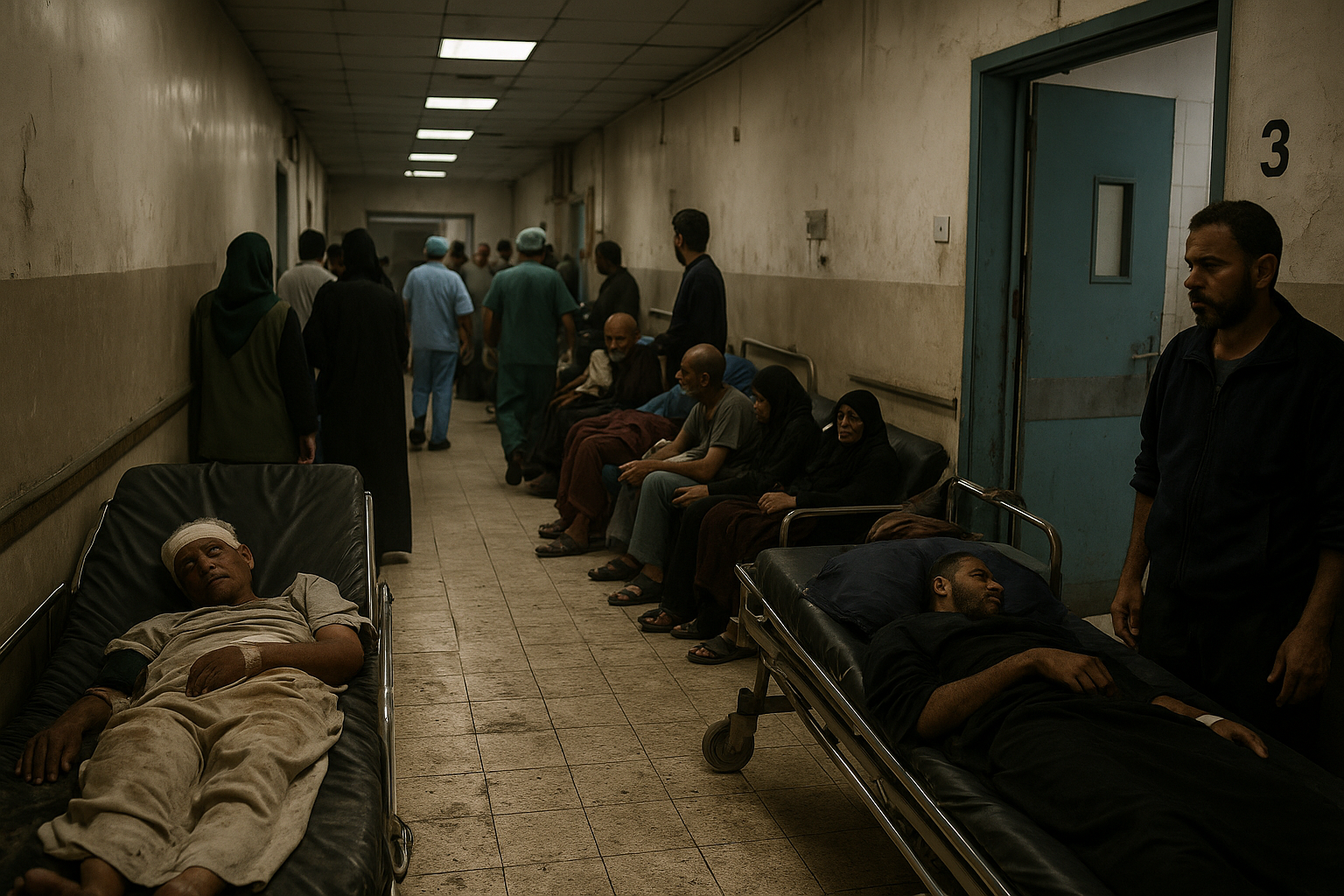WHO Warns Gaza Health System Near Collapse as Last Hospitals Face Shutdown
The WHO reports that both Nasser Medical Complex—the largest and most essential referral hospital in Gaza—and Al-Amal Hospital are currently operating far beyond their capacity.

- Country:
- West Bank and Gaza
The World Health Organization (WHO) has issued an urgent warning about the imminent collapse of the healthcare system in the Gaza Strip, citing the alarming situation at the Nasser Medical Complex and Al-Amal Hospital in Khan Younis, the last two remaining public hospitals in the southern part of the enclave. With no hospitals functional in northern Gaza and escalating hostilities in the south, the risk of a complete breakdown in critical health services is now dangerously real.
The Last Line of Medical Defense in Khan Younis
The WHO reports that both Nasser Medical Complex—the largest and most essential referral hospital in Gaza—and Al-Amal Hospital are currently operating far beyond their capacity. Located within or near the evacuation zone declared by Israeli authorities on 2 June, these hospitals now face severe access restrictions, threatening their ability to function and receive patients or medical staff.
Although no direct orders to evacuate have been given, Israeli authorities have informed Gaza’s Ministry of Health that access roads leading to the hospitals will be obstructed, making it nearly impossible for ambulances, medical staff, or emergency supplies to reach the facilities. This has placed both hospitals on the brink of non-functionality.
“If Nasser and Al-Amal go out of service, people will lose access to essential life-saving care,” the WHO warned in a statement.
Life-Saving Services at Risk
Both hospitals currently provide critical services, including:
-
Emergency and trauma surgery
-
Intensive care
-
Cancer treatment and dialysis
-
Blood transfusions
-
Neonatal and maternal care
The continued arrival of people with life-threatening injuries, coupled with severe shortages of medicine and equipment, has made it impossible for these facilities to keep up with demand. The loss of these hospitals would eliminate 490 hospital beds, reducing the total number of beds available across Gaza to less than 1,400—a 40% drop from pre-conflict levels.
This drastic reduction would leave 2 million people in Gaza without access to a functioning hospital system—marking a devastating turning point in an already catastrophic humanitarian crisis.
A Systematic Dismantling of Gaza’s Healthcare
The WHO emphasized that the destruction of Gaza’s healthcare infrastructure has been systematic and ongoing throughout the 20-month conflict. Health workers, humanitarian organizations, and international partners have managed to maintain partial health services under extreme conditions, often risking their lives in the process.
However, continued attacks on hospitals, denial of humanitarian aid, and restrictions on movement and access have made it nearly impossible to keep healthcare facilities operational. According to WHO officials, this deliberate dismantling must stop.
“The relentless and systematic decimation of hospitals in Gaza has been going on for too long. It must end immediately,” the WHO declared.
Call to Action: Protection, Supplies, and Ceasefire
The WHO has called for urgent international intervention to:
-
Protect Nasser Medical Complex and Al-Amal Hospital from further violence and ensure they remain operational.
-
Facilitate safe access for patients, healthcare staff, and humanitarian workers.
-
Expedite the delivery of essential medical supplies via all available routes.
-
Implement an immediate and lasting ceasefire to prevent further degradation of the health system and protect civilians.
The WHO also reiterated that hospitals must never be militarized, targeted, or used as zones of conflict, reaffirming international humanitarian law and the principle of medical neutrality.
“Patients seeking refuge and care must not risk losing their lives trying to reach hospitals,” the WHO urged.
With Gaza’s healthcare infrastructure teetering on the edge of complete collapse, the WHO’s warning is a sobering reminder of the human toll of protracted conflict and the urgent need for a humanitarian ceasefire. Nasser and Al-Amal hospitals represent the last lifelines for thousands of civilians caught in the crossfire. Their protection, and the swift restoration of medical access and supply lines, is not just a medical necessity—it is a moral imperative.










